Who are anti-Brexit group Best for Britain?
- Published
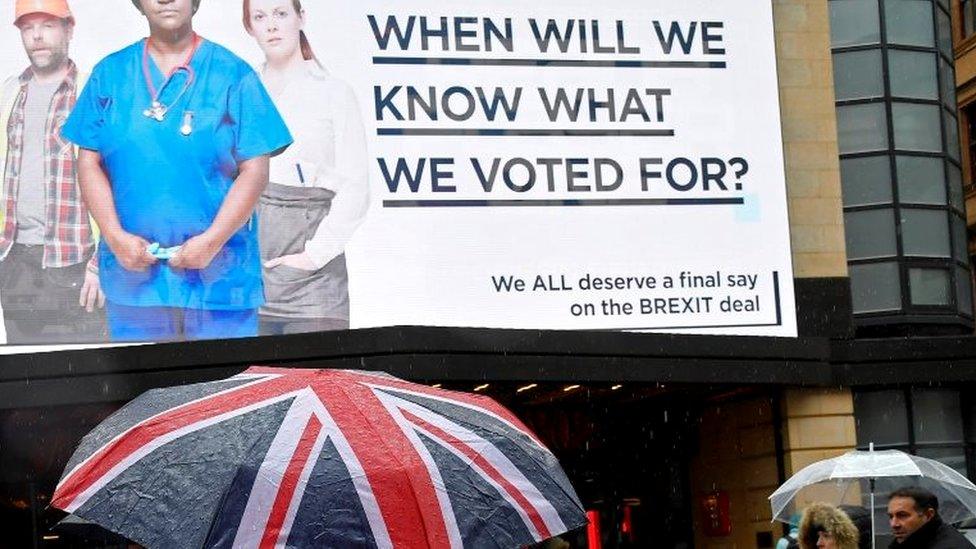
Best for Britain is this week launching a national campaign to stop Brexit. Who is behind it?
Aims
Best for Britain aims to persuade MPs to back a referendum on the final Brexit deal secured by Theresa May when they vote on it in the autumn, with staying in the EU an option on the ballot paper.
It would aim to persuade enough Leave voters to change their mind to vote to keep Britain in the EU - but the first stage of its campaign aims to generate pressure for another referendum.
Its campaign slogan - already displayed on billboards in London, Birmingham, Manchester and Liverpool and in newspaper ads - is "We all deserve a final say on the Brexit deal."
Campaign tactics
According to the Observer, external, Best for Britain will send a "roadmap" to MPs and peers, setting out how they could stop Brexit, when it launches its campaign on Friday.
The group believes a referendum could be held in December, or possibly as late as February or March - when the UK is set to officially quit the EU - if Brussels agrees to it.
It is targeting much of its campaigning muscle at the Labour Party's front bench, which is against another referendum - but it also needs at least 10 Conservative "rebels" on board in order to win a vote in Parliament on an amendment calling for a referendum.
The campaign is also attempting to shore up support among Labour backbenchers sceptical about Brexit and is reportedly targeting 50 Leave-supporting Labour constituencies with billboard ads close to MPs' offices.
The campaign will also lobby the big trade unions in an effort to exert pressure on the Labour leadership and is running a social-media campaign and a "Labour Against Brexit" speaking tour by leading Labour Remainers. It is also funding a grassroots campaign and has handed cash to local volunteers to "help stop Brexit in your area".
History
Best for Britain was set up in April 2017, just before June's snap general election. Its initial aim was to encourage tactical voting to try to get more pro-Remain MPs into the House of Commons. The group said more than a million people had consulted its tactical voting website ahead of 8 June to find pro-Remain candidates.
It reported spending £353,118 between June 2016 and June 2017, and made donations to pro-European candidates in marginal seats, including the Lib Dems' Tom Brake, Labour's Peter Kyle and Green MP Caroline Lucas.
One of the group's founding members, Gina Miller, defeated the government over its power to trigger Article 50 without parliamentary consent, in the Supreme Court in January 2017. However, she stood down the day after the 2017 general election, saying the group had become too party political.
Officially registered as UK-EU Open Policy Limited, Best for Britain is led by business and charity sector figures. This is in contrast to the MP-led People's Vote campaign - which is also pushing for a referendum on the final Brexit deal, although the two campaigns will join forces on 23 June to stage a march on Parliament.
How much money does it have?
Best for Britain has £2.4m in its coffers and is asking donors for another £3.2m to realise its campaigning ambitions, according to its director of communications, Paul Butters, a former spokesman for Tim Farron, the ex-Liberal Democrat leader.
Where does the money come from?
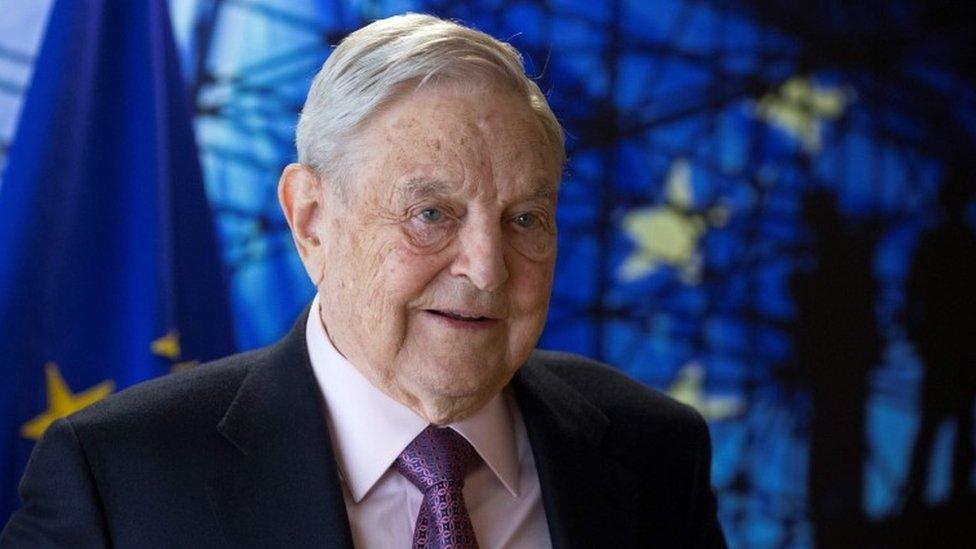
The biggest individual donor is international financier George Soros, a Hungarian-born US citizen, who has given Best for Britain £800,000 in total so far, with £400,000 of that coming since the start of the year through his pro-European Open Society Foundation.
Having made his billions in finance, including betting against sterling on Black Wednesday in 1992 - which gained him a reputation as the "man who broke the Bank of England" - Mr Soros, 87, donated more than £8bn to philanthropic causes between 1979 and 2011.
UK electoral law bans foreign donations but only in the run-up to elections or referendums.
Best for Britain is keen to stress that it has also raised significant sums from more than 8,000 small donors.
But the involvement of Mr Soros has generated a backlash in the Brexit-backing media, with the Daily Mail telling him on its front page, external: "Butt out Mr Soros. You can keep your tainted money."
Mr Soros hit back at the Daily Mail's headline in an article for the Mail on Sunday, external, explaining why his love for Britain had led him to campaign against the "tragic mistake" of Brexit - and the campaign launched a Gofundme crowdfunding page entitled Help Best for Britain fight the Daily Mail, which has raised more than £64,000 in the past 12 days.
Pro-Brexit campaign Leave Means Leave is, meanwhile, raising funds to combat Best for Britain, with its co-chairman John Longworth telling supporters in an email: "We are determined to secure the swift, clean Brexit you all voted for."
Best for Britain is currently under investigation by the Electoral Commission, which oversees campaign spending, for submitting a return with invoices missing and for failing to return a donation of £25,000 from an impermissible donor within 30 days. It says it has complied with all relevant regulations.
Chairman
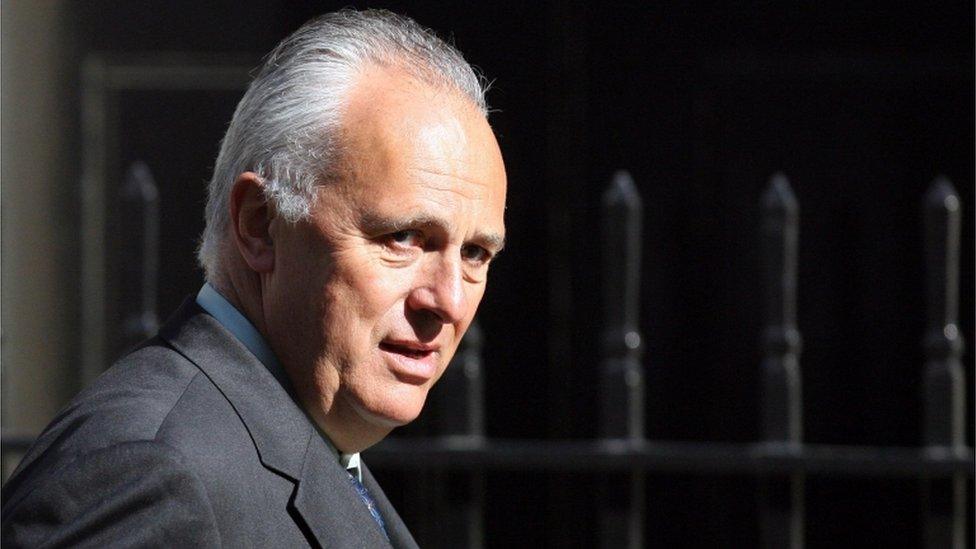
Lord Malloch-Brown, appointed 2 November 2017. A former foreign office minister, under Gordon Brown, who became a life peer in July 2007. Before that, he served as UN deputy secretary general, and from 1977 to 1979 he was a political correspondent at the pro-EU Economist, returning in 1983 for three years as founding editor of the Economist Development Report.
The 64-year-old peer sparked controversy when he told BBC Radio 4's Today programme last month that Britain might as well stay in the EU, given the impossibility of divorcing itself from the Continent's problems.
He said: "Britain's history as an island nation adjacent to mainland Europe is when we try to, sort of, pull away from Europe's problems and close ourselves off to them, they have a horrible habit of infecting us anyway - appeasement in the 1930s, you name it. For centuries, Britain has ignored events on continental Europe at its peril."
Board members
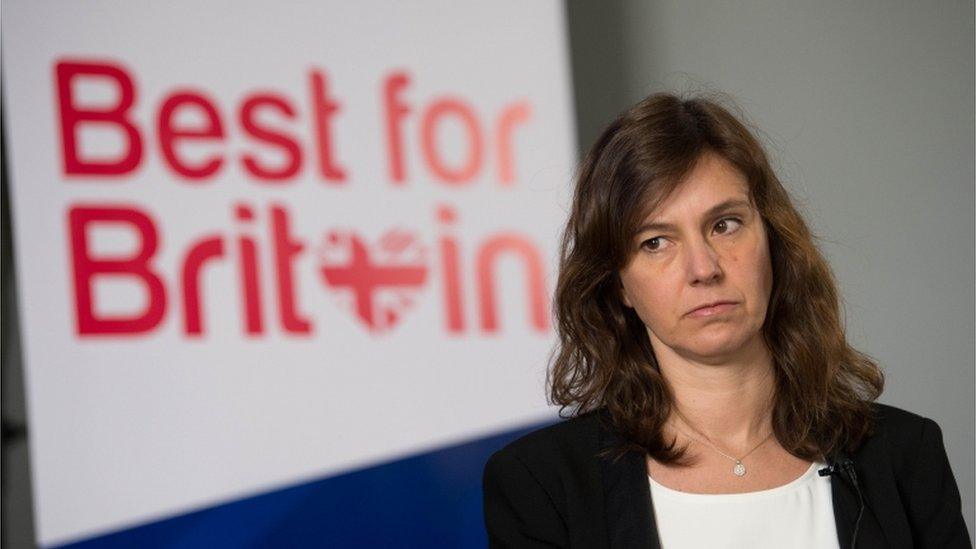
Chief executive officer: Eloise Todd, 41. Until December 2016, Ms Todd worked in Brussels as global director of U2 singer Bono's anti-poverty charity, One. She had worked in the European Parliament for seven years after graduating from the College of Europe in Bruges.
The Guardian has suggested, external that it was her personal connection to Best for Britain's biggest donor, George Soros, through the international development sector, that attracted him to the group, instead of better-known campaigns such as Open Britain, which is now part of the People's Vote group.
Director: Sir Clive Cowdery, appointed 16 December 2016. The insurance businessman founded the Resolution Foundation think tank in 2005. He was chairman and chief executive of General Electric Insurance Holdings from 1998 to 2003. Knighted in the 2016 New Year Honours for services to children and social mobility, Sir Clive, 55, is worth an estimated £147m, according to the Sunday Times Rich List 2018, in which he ranked 804th in Britain.
Director: Shakuntala Ghosh, appointed 3 March 2017. Chief executive of the charity Clore Social Leadership, which runs management training courses for charity workers, since April 2015, "Shaks" Ghosh, 61, led homelessness charity Crisis from 1997 to 2007. She has also held posts at the National Housing Federation and Centrepoint.
Chief economist: Anatole Kaletsky, appointed 16 December 2016. Another former Economist journalist, Mr Kaletsky was appointed chairman of the Institute for New Economic Thinking in 2012, a foundation established after the 2008 financial crisis with $200m (£150m) of grants from, among others, George Soros. In 2010, he wrote Capitalism 4.0: The Birth of a New Economy in the Aftermath of Crisis.
Director: Peter Norris, appointed 16 December 2016. Known as Sir Richard Branson's right-hand man, Mr Norris, 63, has been chairman of the Virgin Group since 2001. Sir Richard donated £25,000 and office space to the campaign in 2017 to help launch it. Before Virgin, Mr Norris was chief executive of Barings Bank when it collapsed in the Nick Leeson "rogue trader" scandal in 1995. He was temporarily banned from being a director by the Department of Trade and Industry in 1998.
Director: Stephen Peel, appointed 19 October 2016. A former Goldman Sachs executive who represented Great Britain in rowing at the 1988 Seoul Olympics, Mr Peel, 52, has donated more than £75,000 to Best for Britain.
Former board members
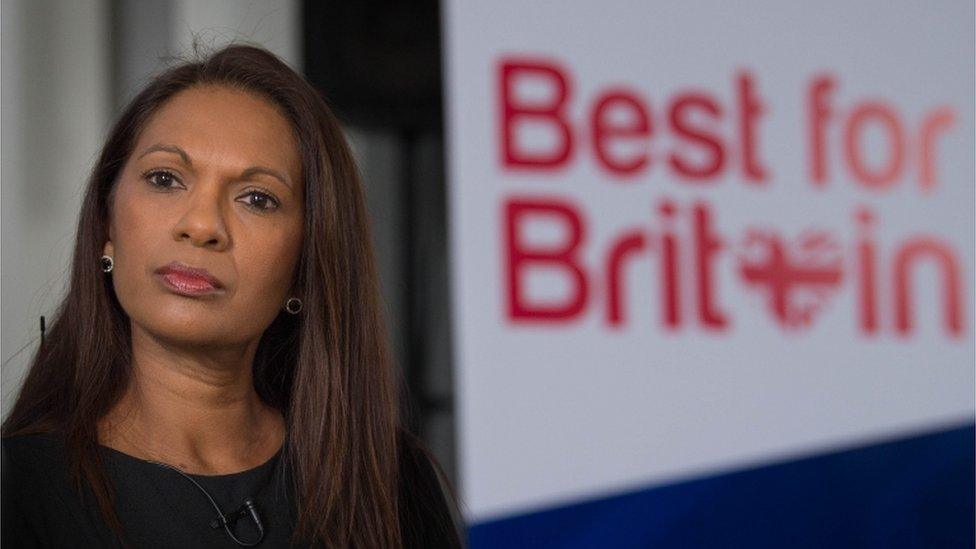
Gina Miller: The businesswoman and philanthropist initially spearheaded Best for Britain, saying in her launch speech: "Throughout the course of this general election campaign, we will be focusing on educating and empowering people to make a tactical vote and choosing MPs who will do the best for Britain. "
But she stood down the day after the 2017 general election and has distanced herself from the group, saying, external it had become more focused on "bringing down the Tories" than Brexit.
Alan Milburn: Chairman of the Social Mobility and Child Poverty Commission from 2012 to 2017, the 60-year-old served in Tony Blair's government, as chief secretary to the Treasury from 1998 to 1999, then as secretary of state for health until 2003. He has been chancellor of Lancaster University since 2015. He resigned from Best of Britain on 3 March 2017.
Sally Tallant: The director of the Liverpool Biennial festival of contemporary art, Sally Tallant, 50, resigned from the group in April 2017.